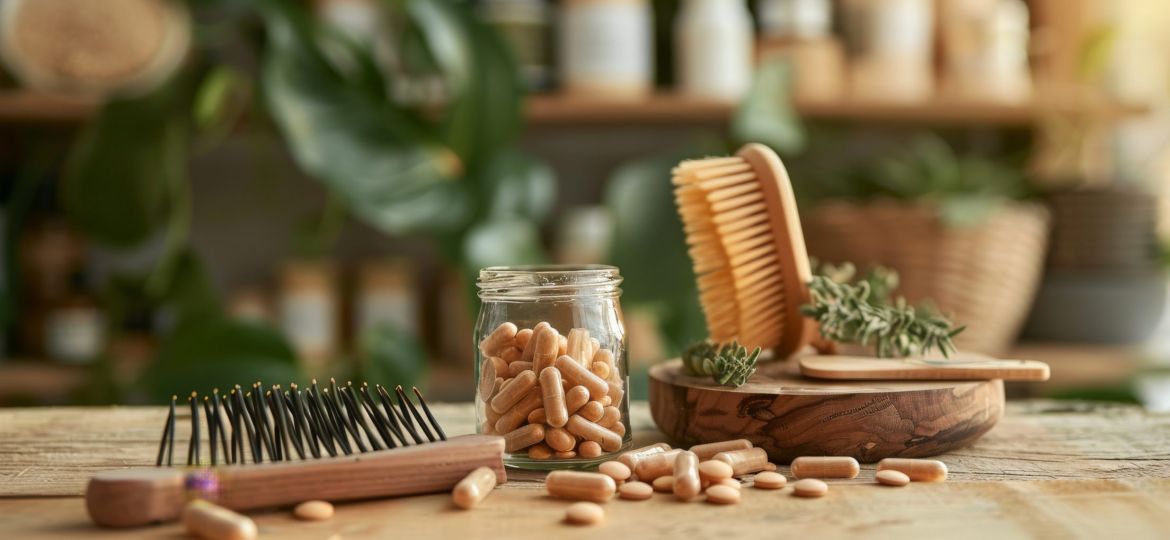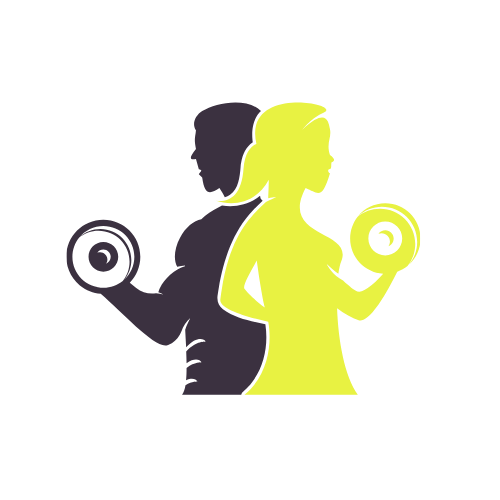
Hair isn’t just a cosmetic feature—it’s a mirror of your overall health. A nutritious diet and smart lifestyle choices can transform not only your hair but your entire well-being. By nourishing your body from within, you can achieve stronger, shinier, and more resilient hair over time.
While genetics play a role in hair quality, your diet and daily habits set the stage for optimal growth. Hair health depends on your body’s ability to construct strong hair shafts and maintain healthy follicles and scalp tissue. Feeding your body the right nutrients creates the perfect environment for luscious, vibrant hair—but remember, this is a long-term investment. Changes in your diet affect new growth, not the hair already on your head. In other words, your strands won’t transform overnight, but within six months to a year, the benefits of a hair-healthy diet will begin to shine through. Average hair growth is roughly 1/4″ to 1 1/4″ per month, so give your new nutrition time to work its magic.
B Vitamins: Folate, B6, and B12
B vitamins are essential for creating red blood cells, which deliver oxygen and nutrients to your scalp, follicles, and growing hair. A deficiency can slow growth, make hair brittle, or even trigger shedding.
Best foods for Vitamin B6: Chickpeas, wild salmon, lean beef, pork tenderloin, skinless chicken, potatoes (white and sweet), oats, bananas, pistachios, lentils, tomato paste, barley, brown and wild rice, peppers, winter squash, broccoli, broccoli rabe, carrots, Brussels sprouts, peanuts, eggs, shrimp, tofu, apricots, watermelon, avocado, strawberries, whole-grain bread.
Best foods for Vitamin B12: Shellfish (clams, oysters, crab), wild salmon, trout, tuna, lean beef, soy milk, veggie burgers, cottage cheese, yogurt, milk, eggs, cheese.
Best foods for Folate: Lentils, black-eyed peas, soybeans, oats, turnip greens, spinach, mustard greens, green peas, artichokes, okra, beets, parsnips, broccoli, broccoli rabe, sunflower seeds, wheat germ, oranges, Brussels sprouts, papaya, seaweed, berries, starchy beans, cauliflower, Chinese cabbage, corn, whole-grain bread and pasta.
Biotin
Biotin, another B vitamin, is vital for hair growth and scalp health. Though deficiency is rare, it can lead to hair loss in extreme cases. For most people, a biotin-rich diet is sufficient—supplements aren’t necessary.
Best foods for Biotin: Eggs, peanuts, almonds, wheat bran, walnuts, Swiss chard, whole wheat bread, wild salmon, cheese, cauliflower, avocado, raspberries.
Iron-Rich Protein
Iron is essential for carrying oxygen to hair follicles. Low iron levels can lead to anemia, fatigue, and hair thinning or loss. Women, especially premenopausal, are more likely to experience iron deficiency due to blood loss during menstruation.
Best animal sources of iron: Clams, oysters, lean beef and lamb, skinless chicken and turkey, pork tenderloin, shrimp, egg yolks.
Best vegetarian sources: Tofu, tempeh, soybeans, lentils, starchy beans, black-eyed peas.
Best iron-rich vegetables: Spinach, seaweed, Swiss chard, asparagus, Brussels sprouts, mustard greens, kale, broccoli.
Pair plant-based iron with Vitamin C-rich foods to improve absorption.
Vitamin C
Vitamin C supports hair by helping your body absorb non-heme iron and by producing collagen—a structural protein vital for hair follicles, blood vessels, and scalp health. A deficiency can lead to brittle, weak hair and skin issues around hair follicles.
Best foods for Vitamin C: Guava, bell peppers, oranges, grapefruit, strawberries, pineapple, kohlrabi, papaya, lemons, broccoli, kale, Brussels sprouts, kidney beans, kiwi, cantaloupe, cauliflower, cabbage, mangoes, white potatoes, mustard greens, tomatoes, snow peas, sugar snap peas, clementines, rutabagas, turnip greens, raspberries, blackberries, watermelon, tangerines, okra, lychees, summer squash, persimmons.
Beta-Carotene
Beta-carotene converts to Vitamin A in the body, supporting all cell growth—including hair cells. Deficiency can cause dull, lifeless hair and dry skin, but excessive Vitamin A from supplements can be harmful. Focus on beta-carotene-rich foods instead.
Best foods for Beta-Carotene: Sweet potatoes, carrots, kale, butternut squash, turnip greens, pumpkin, mustard greens, cantaloupe, red peppers, apricots, Chinese cabbage, spinach, romaine and green leaf lettuce, collard greens, Swiss chard, watercress, grapefruit, watermelon, cherries, mangos, tomatoes, guava, asparagus, red cabbage.
Zinc
Zinc is essential for tissue growth and repair, including hair. It supports oil gland function around follicles, and a deficiency can result in hair loss, slow growth, and dandruff. Most people get enough zinc from food. Over-supplementation can interfere with copper absorption, so stick to food sources or a standard multivitamin.
Best foods for Zinc: Oysters, lobster, lean beef, crab, ostrich, wheat germ, skinless chicken or turkey (especially dark meat), lean lamb, clams, mussels, pumpkin seeds, yogurt, pork tenderloin, starchy beans, lentils, black-eyed peas, soybeans, lima beans, pine nuts, cashews, peanuts, sunflower seeds, pecans.
By focusing on these nutrients and eating a colorful, balanced diet, you create the perfect foundation for healthy hair growth, scalp strength, and vibrant shine. Remember: healthy hair starts from within.
